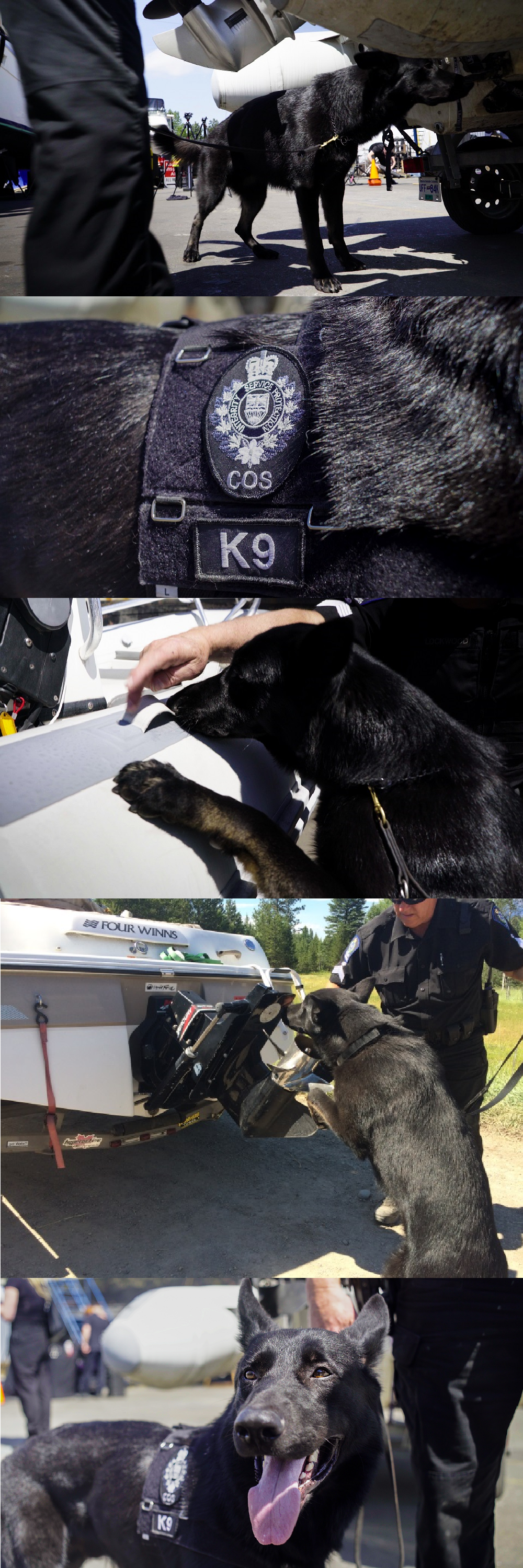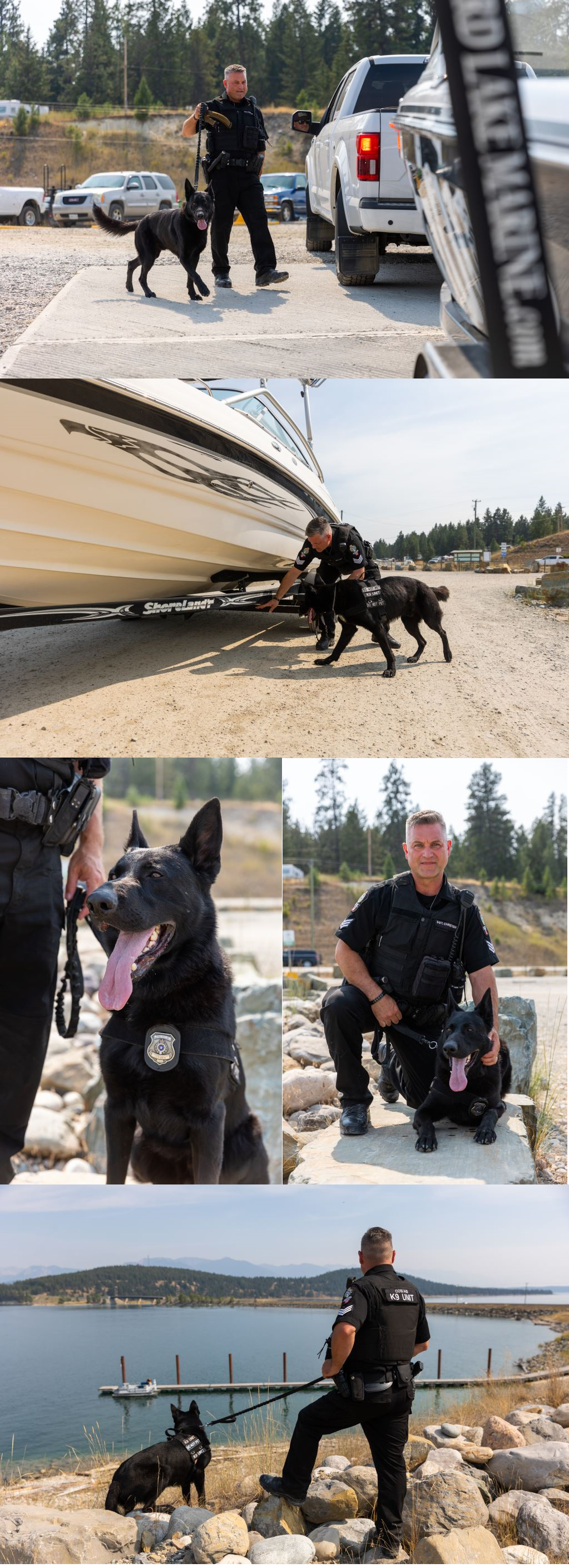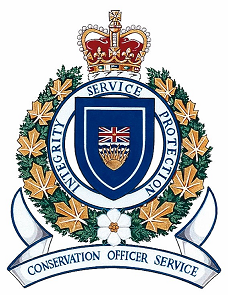Invasive Mussel Defence Program
The B.C. Invasive Mussel Defence Program’s goal is to prevent the introduction of zebra, quagga and golden mussels into B.C. The program’s prevention efforts are focused on:
- Inspecting boats
- Monitoring lakes
- Educating the public
- Coordinating actions with neighbouring jurisdictions
On this page
- About the Invasive Mussel Defense Program
- 2015-2024 Watercraft Inspection Seasons
- Resources
- Program funders
- Aquatic Invasive Species K9 Unit
About the Invasive Mussel Defense Program
The Invasive Mussel Defence Program (IMDP) was created in 2015 and has 3 main components:
- A watercraft inspection program to detect and respond to high-risk watercraft potentially transporting invasive mussels into B.C. from infested lakes or rivers
- Lake monitoring to confirm the continued absence of invasive mussels in B.C. waters
- Outreach and education to educate people and change behaviour by promoting the message of "clean, drain, dry" to the boating community, in collaboration with partners
Provincial law gives the B.C. government authority to take action on invasive mussels. The Controlled Alien Species (CAS) Regulation under the Wildlife Act is the principal law that defines, lists, and affords provisions to regulate invasive mussels in B.C.
Under the CAS Regulation, prohibitions apply to any mussel listed in Schedule 4 (zebra, quagga and golden mussel). Specifically, it is illegal for a person to:
- Possess, breed, ship, or transport prohibited mussels
- Release prohibited mussels into B.C. waters
- Allow a prohibited mussel to be released or escape into B.C. waters
Inspectors are trained in the watercraft inspection program and have been designated as auxiliary conservation officers under the Environmental Management Act. This designation provides powers to stop, inspect, search, question, and give decontamination orders.
For more information on the CAS Regulation and invasive mussels, consult:
2015-2024 Watercraft Inspection Seasons
The provincial Invasive Mussel Defence Program was launched in 2015. The IMDP would like to recognize the support provided by program’s founding partners: the Columbia Basin Trust, the Columbia Power Corporation, BC Hydro and Fortis BC that makes this program possible. The annual program workplan incorporates ongoing feedback from partners, the public and jurisdictions across western Canada and the United States to ensure funding allocations maximize program effectiveness. Results and lessons learned from previous inspections seasons are available in the program reports posted below.
|
|
2015 |
2016 |
2017 |
2018 |
2019 |
2020 |
2021 |
2022 | 2023 | 2024 |
|---|---|---|---|---|---|---|---|---|---|---|
|
Inspection Stations |
Roving |
8 |
10 |
12 |
12 |
9 (2 roving) |
7 (2 roving) |
6 (2 roving) | 6 (2 roving) | 6 (2 roving) |
|
Number of Inspectors |
12 |
32 |
65 |
64 |
64 |
37 |
45 |
32 | 43 | 49 |
|
Hours of Operation |
5 days per week, 7 hours per day |
7 days per week, 10 hours per day |
9 stations, 7 days per week, dawn to dusk; |
5 stations dawn to dusk; |
4 stations dawn to dusk; |
9 stations dawn to dusk, 10hrs/day |
Dawn to dusk; 10 hours per day; 1 station 24 hours |
Dawn to dusk; 10 hours per day; 1 station 24 hours | Dawn to dusk; 10 hours per day; 1 station 24 hours | Dawn to dusk; 10 hours per day; 1 station 24 hours |
|
Inspection Season |
June to October |
April to October |
April to mid-November |
March to late October |
March to late October |
May 15 to October 25 |
April to October |
April to October | April to October | April to October |
|
|
2015 |
2016 |
2017 |
2018 |
2019 |
2020 |
2021 |
2022 | 2023 | 2024 |
|---|---|---|---|---|---|---|---|---|---|---|
|
Total Watercraft Inspected |
4,350 |
24,500 |
35,500 |
40,700 |
52,000 |
29,900 |
33,300 |
20,100 | 20,900 | 24,500 |
|
Number of People Interacted With |
~10,000 |
~50,000 |
72,300 |
78,600 |
95,000 |
55,900 |
61,600 |
36,400 | 39,300 | 45,400 |
|
High Risk Inspections |
70 |
685 |
2,071 |
1,652 |
1,290 |
158 |
244 |
122 | 155 | 199 |
|
Mussel Fouled Boats |
15 |
17 |
25 |
25 |
22 |
16 |
17 |
13 | 14 | 12 |
Resources
2025
- 2025 Invasive Mussel Defence Program Interim Final Report (PDF, 599KB)
- 2025 Invasive Mussel Defence Program Summer Status Report (PDF, 905KB)
2024
- 2024 Invasive Mussel Defence Program Interim Final Report (PDF, 1.1MB)
- 2024 Invasive Mussel Defence Program Summer Status Report (PDF, 1MB)
- 2024 Invasive Mussel Defence Program Final Report (PDF, 8.1MB)
2023
- 2023 Invasive Mussel Defence Program Interim Final Report (PDF, 580KB)
- 2023 Invasive Mussel Defence Program Summer Status Report (PDF, 506KB)
- 2023 Invasive Mussel Defence Program Final Report (PDF, 885KB)
2022
- 2022 Invasive Mussel Defence Program Interim Final Report (PDF, 1MB)
- 2022 Invasive Mussel Defence Program Summer Status Report (PDF, 1.5MB)
- 2022 Invasive Mussel Defence Program Final Report (PDF, 3.3MB)
2021
- 2021 Invasive Mussel Defence Program Summer Status Report (PDF, 395KB)
- 2021 Invasive Mussel Defence Program Interim Final Report (PDF, 1.4MB)
- 2021 Invasive Mussel Defence Program Final Report (PDF, 9.9MB)
2020
- 2020 Invasive Mussel Defence Program Summer Status Report (PDF)
- 2020 Invasive Mussel Defence Program Interim Final Report (PDF)
- 2020 Invasive Mussel Defence Program Final Report (PDF)
2019
- 2019 Invasive Mussel Defence Program Spring Status Report (PDF)
- 2019 Invasive Mussel Defence Program Summer Status Report (PDF)
- 2019 Invasive Mussel Defence Program Interim Final Report (PDF)
- 2019 Invasive Mussel Defence Program Final Report (PDF)
2018
- 2018 Invasive Mussel Defence Program Spring Status Report (PDF)
- 2018 Invasive Mussel Defence Program Summer Status Report (PDF)
- 2018 Invasive Mussel Defence Program Interim Final Report (PDF)
- 2018 Watercraft Inspection Season Final Report (PDF)
2017
- 2017 Invasive Mussel Defence Program Mid Season Status Report (PDF)
- 2017 Invasive Mussel Defence Program Fall Status Report (PDF)
- 2017 Invasive Mussel Defence Program Interim Final Report (PDF)
- 2017 Watercraft Inspection Season Final Report (PDF)
2016
- Monthly Status Reports: May (PDF) / June (PDF) / July (PDF) / August (PDF) / September (PDF) / Final Status Report (PDF)
- 2016 Watercraft Inspection Season Final Report (PDF)
2015
- 2015 Watercraft Inspection Season Final Report (PDF)
- 2015 Zebra and Quagga Mussel Early Detection Rapid Response Plan (PDF)
Program funders

The IMDP is funded with support by:
- The Columbia Basin Trust
- The Columbia Power Corporation
- BC Hydro
- Fortis BC
Aquatic Invasive Species K9 Unit
In 2017, the program started the Aquatic Invasive Species K9 unit. The first of B.C.’s multipurpose detection dogs was Kilo. The primary handler of Kilo is Sergeant Dan Bartol within the Conservation Officer Service (COS). Kilo is trained to detect invasive mussels, firearms and bear parts, and helps in evidence recovery cases within the Conservation Officer Service. In 2024 after 8 years of service Kilo retired from the AIS K9 unit. The COS is currently training a new detection dog to join the AIS K9 team.
In the fall of 2018, a second multipurpose detection dog, called Major, joined the K9 unit. Major is a German shepherd whose primary handler is Sergeant Denny Chretien. These dogs are valuable tools for detecting invasive mussels on watercraft travelling through and into B.C.
 |
 |

